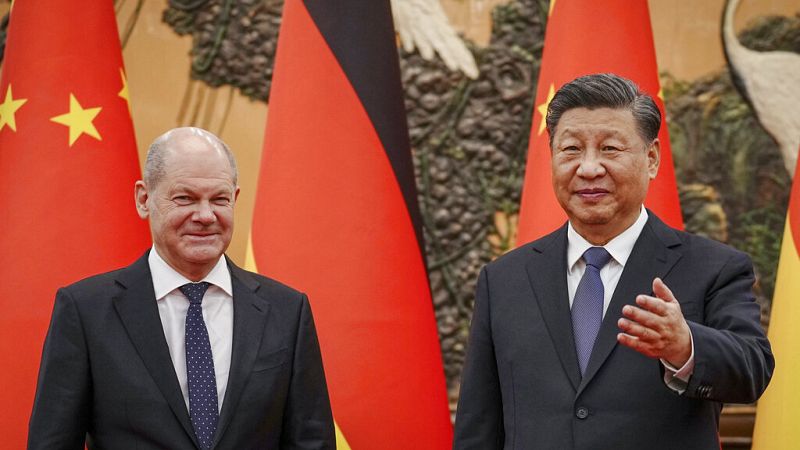
GERMAN CHANCELLOR RULES OUT DECOUPLING FROM CHINA BUT CALLS FOR QUALITY COOPERATION
Germany’s chancellor Olaf Scholz has said he has no plans to decouple from China but demanded more progress towards better access for German companies in the world’s second-largest economy.
Scholz is on a three-day visit to China to press his case for a more level economic playing field.
The trip comes just days after he and France’s president Emmanuel Macron called for a “re-balancing” of trade relations with Europe.
China’s president Xi Jinping said Germany should view and develop bilateral ties from a long-term and strategic perspective.
“The significance of consolidating and developing China-Germany relations goes far beyond the bilateral scope and carries great influence on the Eurasian continent and the rest of the world,” he said.
'Reckless' actions
Scholz’s visit arguably comes at a difficult time. Just last week China slammed the EU as “reckless” after it launched an investigation into state subsidies for Chinese wind turbine manufacturers.
The investigation looks into whether Chinese subsidies are giving wind turbine companies an unfair advantage for projects in five member countries: Spain, Greece, France, Romania and Bulgaria.
That probe was launched after similar investigations into Chinese solar panel makers and electric trains.
“We’re making full use of the tools that we have,” the EU commissioner for competition, Margrethe Vestager, said.
“This action sends a detrimental signal to the world, suggesting discrimination against Chinese enterprises and endorsing protectionism,” the China Chamber of Commerce to the EU said.
Record economic growth
This is all happening as China posts record economic growth.
At a press conference earlier on Tuesday, the National Bureau of Statistics said GDP for the first quarter of 2024 had grown 5.3%, reaching over 29 trillion yuan (€37 trillion).
That figure exceeds the 5% growth target set by China’s premier Li Qiang in March, which some analysts saw as “ambitious”.
Those numbers are in stark contrast to the stumbling start to the year for the EU.
The Commission’s Winter Interim Forecast, published in February, revised economic growth for 2024 down to 0.9% in the EU and 0.8% in the eurozone.
Germany's economy, meanwhile, is one of the worst-performing in Europe, according to the April 2024 Weil European Distress Index.
2024-04-16T13:19:08Z dg43tfdfdgfd